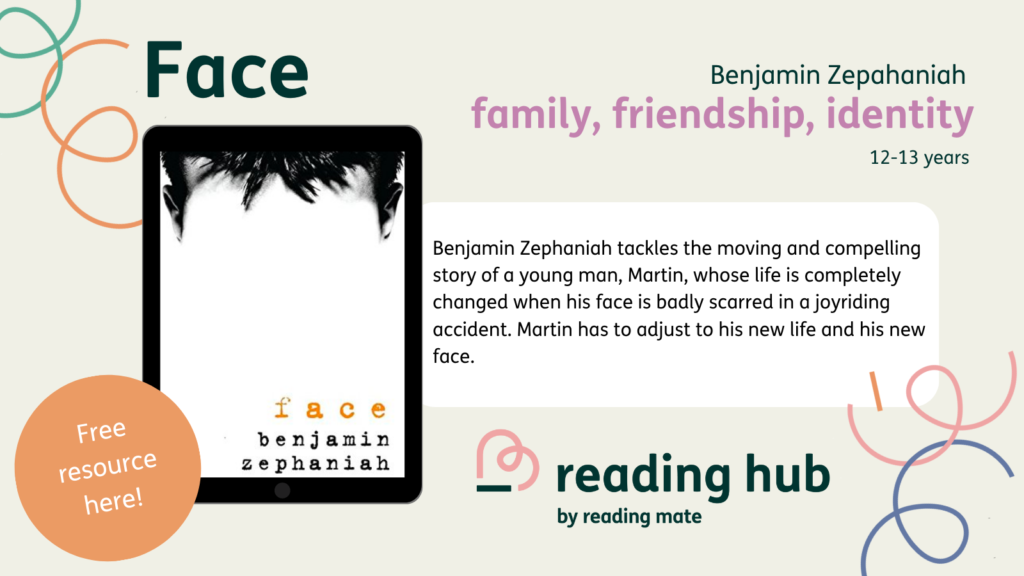Over the years I’ve had many discussions with parents and pupils about why their child needs to know the difference between a metaphor and a simile. And I found myself realising that it was an impossible sell. Not only because it wasn’t an essential skill but because I was on their side!
Looking for lesson ideas and resources to help in the classroom? Check out this series of activities for Face by Benjamin Zephaniah.


Realistically, no adult will come face to face with type of tasks that they spend 11 years in school practising. So, what are schools doing to prepare your child for life?
Many parents (and teachers) would argue not enough. Yet, the demands on children are greater than ever and testing and exams are tougher. Why is this?
What are schools teaching your children?
The statutory guidance (GOV.uk) for schools says that the national curriculum ‘forms one part of the school curriculum’. And the national curriculum should provide ‘pupils with an introduction to the essential knowledge they need to be educated citizens’ (does that mean knowing how to do algebra makes us ‘educated’?)
What I find most interesting is that the government states that the national curriculum should be one part of the school curriculum. Meaning that there should be opportunity for pupils to learn about ‘responsibilities and experiences of later life’. This I agree with.
But, where’s the room for the ‘extra-curricular’ when schools have to timetable 12 subjects into your child’s week?
I’m not saying that all of the skills your child’s taught are a waste of time. Far from it in fact. Literacy, numeracy and cultural studies (to name a few) are essential to enabling your child to have access to a good quality of life. But surely we need to make room for the things that will actually help your child manage a budget or even open a bank account?
 What about the assessments?
What about the assessments?
Every day your child’s teacher will be doing ‘formative’ (informal) assessments of your child’s progress. This essentially means they’re monitoring how engaged they are, how they approach tasks and the work they manage to produce in the time they’ve been given. No red pens or grades, just observations (my personal favourite form of assessment).
But as your child embarks on their journey through the key stages, the type of assessment become more ‘summative’ (formal). So, your child will do SATs, end of term tests etc. As the format of GCSEs changed a couple of years ago, this meant that the style of assessment in the early key stages had to change too. You’ll probably notice that the ‘type’ of tests your child’s doing in KS1 and KS2 look more like exam papers. This is deliberate. It’s to get your child used to the format and prepare them for later exams. I have a major issue with this.
These exams aren’t structured to help your child negotiate a better salary for themselves, conduct a good interview or even write a well-structured CV. Nope. These tests are primarily about identifying techniques, commenting on them and then recreating it themselves (in the case of English tests anyway).
 How could it be done differently?
How could it be done differently?
My background is English so I will start by saying that there should be more breadth and variety when it comes to the books your children ‘study’ in school.
Reading is the ultimate passport to learning. Not only because you’re exposed to other points of view but books are literal history. They’re records of social, economical and cultural shifts.
Also, children should have ample time to read every day. This is especially important for disadvantaged pupils as school is the only place they’re able to express themselves and be free of other worries.
School trips is another hugely beneficial activity for children’s understanding of the workd around them. I love taking my students on trips. Although I wouldn’t say taking 300 year 9 pupils to see The Woman in Black was the best thing to do during my NQT year, they all loved it which made all the stress worth it. For some of these students it was the first time they’d stepped foot inside a theatre.
 Teaching comes to life outside of the classroom.
Teaching comes to life outside of the classroom.
Museums, national parks, galleries, the coast (I’ve taught some children who’ve never seen the sea and it was one of the saddest moments in my career) are all excellent places to learn and be inspired.
PSHE should include information about how to cope with adult responsibilities, credit cards, tax returns, mortgage deals. As well as more time to discuss mental health issues and the facilities available if or when you need them; make PE an engaging (and not intimidating lesson). I hated PE all through school (I actually threw up during my first PE lesson in high school) but now I love exercise because I’ve found something I enjoy. Unfortunately, PE in school is very skills-focussed and for a child like myself who was terribly uncoordinated and ‘not a team player’ I never enjoyed it. I don’t think team sports should be irradicated but there should be a ‘menu’ of sports or activities for learners to choose from; less emphasis on exams and written assessments and more opportunity for practical and vocational subjects.
I’ve never taught two students who learn in the same way or even enjoy or are good at the same subjects. Never.
 Every child is different and has different strengths and weaknesses.
Every child is different and has different strengths and weaknesses.
Our school system should reflect this. We need to focus less on retaining information and regurgitating facts and more on how we can equip individuals to have the best possible start in life.
 If we
If we 
